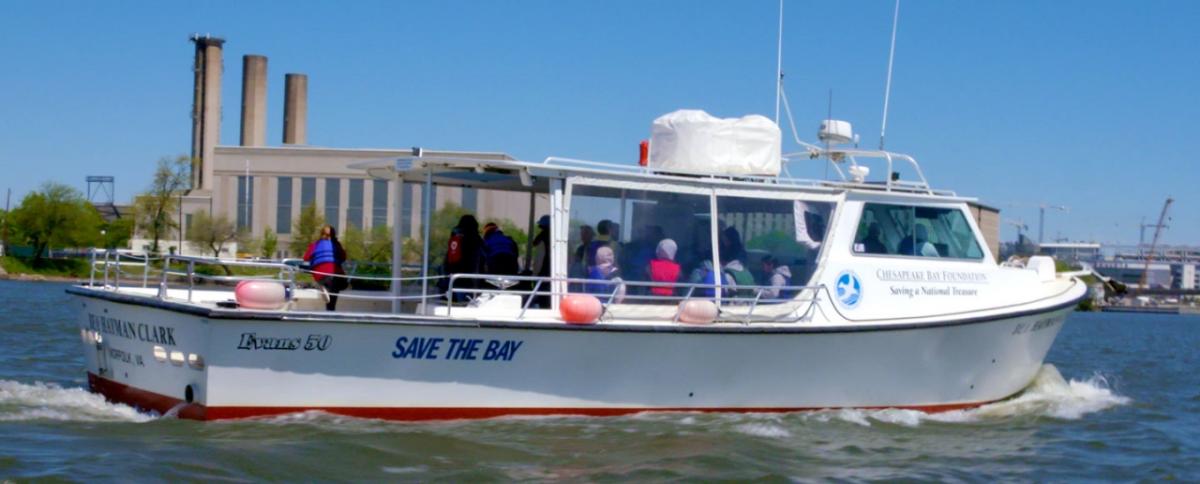Washington, D.C., students learn in a floating classroom
Students from The School Without Walls High School and other schools in the Washington, D.C., area are learning about their local waterways, thanks to the Chesapeake Bay Foundation and Wells Fargo

Washington, D.C., students learn in a floating classroom
It’s not often that teenagers are able to spend a school day on a boat instead of in a classroom, but students from The School Without Walls High School in Washington, D.C., had that opportunity recently. As the high school students traveled along the Potomac and Anacostia rivers, they tested water quality, identified fish, examined maps, and surveyed bird diversity.
The field trip was through the Chesapeake Bay Foundation’s environmental education program, which is designed to educate, engage, and empower students to make a difference by giving them opportunities to experience and enjoy local waterways in the mid-Atlantic region.
Video: Students from The School Without Walls High School in Washington, D.C., learn the importance of saving the Chesapeake Bay. (2:24)
“They can see what’s damaging the waterways, what they can do, and it gives them the opportunity to make positive change, to ensure the water is healthier for all of us,” said David Tucker, director of major giving for the Chesapeake Bay Foundation in Washington, D.C. “We also ensure that socioeconomic status doesn’t affect a school’s decision to come out, thanks to donors like Wells Fargo. We want to reach as many schools as possible.”
Since 2008, Wells Fargo has provided $163,500 for the foundation’s various education programs across the mid-Atlantic region — including $27,500 to the education program in D.C. since 2015.
“It is such a unique opportunity for inner-city kids to learn about the natural environment that surrounds us,” said Anna Bard, community relations manager for Wells Fargo. “A lot of these kids have never been on a boat before. One thing they’ll gain is a personal responsibility for taking care of our Chesapeake Bay watershed. Just because you don’t see it, things like littering in a storm drain affect the watershed.
“What we do really matters,” she said. “That’s important for our kids to learn, and it provides hands-on experience they would not usually come into contact with. Education and environmental stewardship are two of Wells Fargo’s primary focus areas in the greater Washington, D.C., area, so this is a win-win.”

